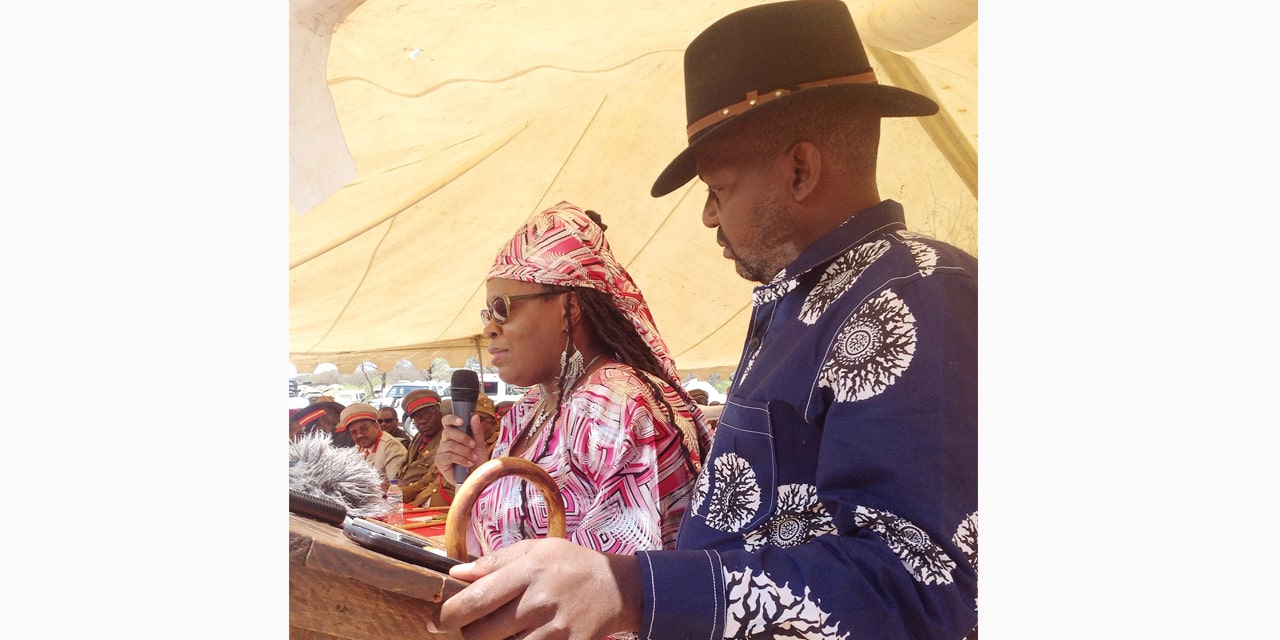Staff Writer
Diasporans from Botswana, South Africa, United Kingdom (UK) are among panelists joining descendants of the victims of the Ovaherero and Nama genocide in tackling this issue during a virtual discussion to be livestreamed tomorrow evening.
This is to observe the International Day of Commemoration and Dignity of the Victims of the Crime of Genocide, and of the Prevention of this Crime, which is observed every year on 9 December. This year also sees the 78th anniversary of the 1948 United Nations Convention on the Prevention and Punishment of the Crime of Genocide, also known as the Genocide Convention.
The panelists the Ovaherero and Ovambanderu Genocide Foundation (OGF) that is hosting the discussion to be moderated by its provisional chairperson, Mbakumua Hengari, have lined up for the discussion is Esther Stanford-Xosei from the United Kingdom; Stephen Raurau, a Batswana of Namibian descent; Kenaura Appolus, a South African of also Namibian descent; Komootjiua Hangero, Namibian living in the UK and from the home front former Parliamentarian and founder of the Nama Genocide Technical Committee, Ida Hoffmann and human right activist lawyer, John Nakuta, himself no stranger to the issue of Genocide, Apology and Reparations (GAR).
Stanford-Xosei is no stranger to Namibia, and especially to the Ovaherero and Nama genocide as a Reparations Specialist and Scholar-Activist having visited Namibia in 2017 when she delivered a lecture at the Namibia University of Science and Technology (Nust) in 2017 when she was also one of the speakers at the annual commemoration of the 1904 Extermination Order against the Ovaherero at the Ozombuzovindimba in the Otjinene Constituency where the order was issued.
The panelists are to interrogate the Joint Declaration between the Namibian government and its German counterpart, and this may delver Restorative/Transitional Justice to the Ovaherero and Nama descendants of the victims of the 1904-1908 genocide committed by Imperial Germany.
Meanwhile, the OGF sadly note that Namibia is observing the Day yet again without anything significant having happened on the Namibian soil in memorializing the Ovaherero and Nama genocide. “The Namibian government having as yet to institute in Namibia a National Day of Remembrance in the honour of the Ovaherero and Nama 1904-1908 genocide victims at the hands of Imperial Germany,” the OGF remarks referring to the 2016 motion in the National Assembly by former Swanu of Namibia member of Parliament, Usutuaije Maamberua. With this motion Maamberua moved for a National Day of Remembrance of the Ovaherero and Nama genocide. Five years after, with the issue having been even put to the nation, especially the affected communities for their opinion, that affirmed that such a day be instituted, 28 May, as suggested by the motion, has yet to be declared Genocide Remembrance Day in Namibia.
“Despite the Namibian government having been apparently engaged since 2015, in genocide negotiations with the German government, little has been done in Namibia, if only to memorialise the genocide of the Ovaherero and Nama. This calls into question the genuineness and seriousness of the Namibian government with the said negotiations on genocide it has been having with its German counterpart,” the OGF notes in a statement it issued to observe the international Day of Commemoration.
Reacting to the Minister of Defence and Veteran Affairs, Frans Kapofi, saying the government was not obligated to have taken the Joint Declaration between it and the German government to the National Assembly, the OGF says indeed the Minister could not have been more right. Because since the government has not been negotiating with the mandate of the affected communities. Not only this but has gone off track regarding the 2006 Resolution of the National Assembly on whose authority it is claiming to have been negotiating. On the contrary the OGF is accusing the government of having usurped the rights and mandate of the affected communities for its own intrinsic interest, which is beefing its bilateral relations with Germany.
Given this, the OGF feels it is high time that the affected communities claim back ownership of the cause of Genocide, Apology and Reparations as the Namibian government has proven itself not be working in their best interest. Thus the affected communities must not only claim back ownership of the cause but also proved it bold leadership. The public can link to the discussion through: https://www.facebook.com/events/2167207383442413/




